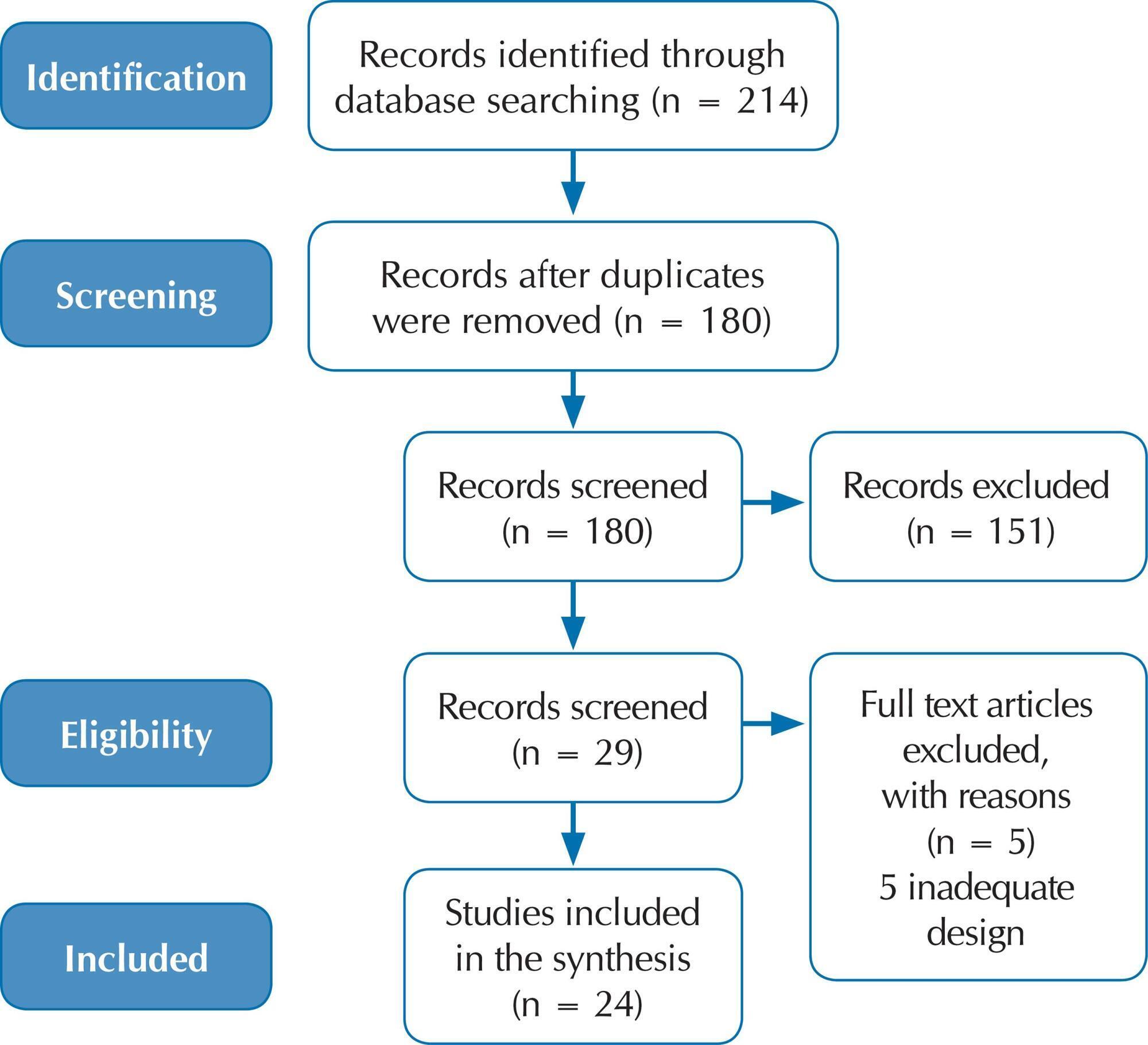-
ORIGINAL ARTICLE12-16-2024
Religion and professional experience: Are they predictors of nurses’ spiritual intelligence? Cross-sectional study
Revista Brasileira de Enfermagem. 2024;77(6):e20240217
Abstract
ORIGINAL ARTICLEReligion and professional experience: Are they predictors of nurses’ spiritual intelligence? Cross-sectional study
Revista Brasileira de Enfermagem. 2024;77(6):e20240217
DOI 10.1590/0034-7167-2024-0217
Views0See moreABSTRACT
Objectives:
to analyze the relationship between religion and professional experience with spiritual intelligence in nurses
Methods:
cross-sectional and analytical study carried out in 2021, with the participation of 544 nursing professionals working in health facilities in Peru during the COVID-19 pandemic. Multiple regression analysis and Pearson’s correlation were used to analyze the data.
Results:
in nurses, a healthy level of spiritual intelligence predominated (42.8%). Those who did not profess a religion were more likely to have a lower spiritual intelligence score (global scale and dimensions); however, experienced nurses were more likely to have higher spiritual intelligence (global scale and dimensions) than novice nurses (p<0.05).
Conclusions:
spiritual intelligence in nurses was predicted by religion and professional experience. This finding suggests that spiritual intelligence in nursing is consolidated through religious practices and during professional practice.
-
ORIGINAL ARTICLE12-05-2019
Spirituality and religiosity for the transcendence of the elderly being
Revista Brasileira de Enfermagem. 2019;72:259-265
Abstract
ORIGINAL ARTICLESpirituality and religiosity for the transcendence of the elderly being
Revista Brasileira de Enfermagem. 2019;72:259-265
DOI 10.1590/0034-7167-2018-0840
Views0See moreABSTRACT
Objective:
to understand the life experiences that favor transcendence of the elderly being.
Method:
a qualitative phenomenological hermeneutic study, in two groups of elderly coexistence. The selection of participants was by intentional sampling: 11 elderly, achieving theoretical saturation. Data collection was carried out through a phenomenological interview with a detonating question. Ethical principles of the General Health Law in health research were fulfilled. Analysis with Heideggerian hermeneutic circle was performed.
Results:
unity of meaning on the consciousness of a higher power for transcendence is highlighted, where spirituality and religiosity are resources of the elderly for strength, feel protected, overcome difficult situations and reach fullness; both favor the understanding of their historicity by manifesting enlightenment.
Final considerations:
transcendence of the elderly being is favored with spirituality and the experiences of their daily life are imbued with a spiritual and religious relationship that give meaning to their existence.
-
REVIEW01-01-2018
Spirituality review on mental health and psychiatric nursing
Revista Brasileira de Enfermagem. 2018;71:2323-2333
Abstract
REVIEWSpirituality review on mental health and psychiatric nursing
Revista Brasileira de Enfermagem. 2018;71:2323-2333
DOI 10.1590/0034-7167-2016-0429
Views0See moreABSTRACT
Objective:
Gather the concepts, theories and interventions about spirituality, its nature and functions in mental health and psychiatric nursing.
Method:
A literature review proceeded on February 2016. It has integrated 214 studies published until December 2015 by crossing Spirituality and Psychiatric Nursing mesh terms in databases.
Results:
Conceptualization about spirituality and religion, their complexity in nursing research, education, and clinical approach; their functions to human being correlated to the purpose of life, transcendental connections, and support in mental health; the professional boundaries in address to spirituality in mental health scenery, and a descriptive literature recommendations and a instruments catalog.
Conclusions:
Spirituality in nursing mental health and psychiatry remains a theoretical problem, and has a clinical mischaracterized approach; recently publications try to promote a human and holistic trend in the practice, as a challenge to lead the current circumstances to valid nursing bases.




